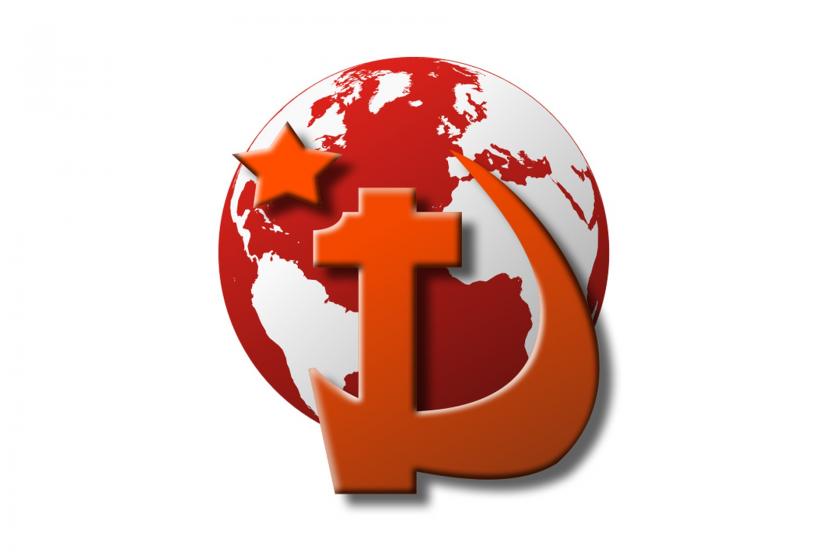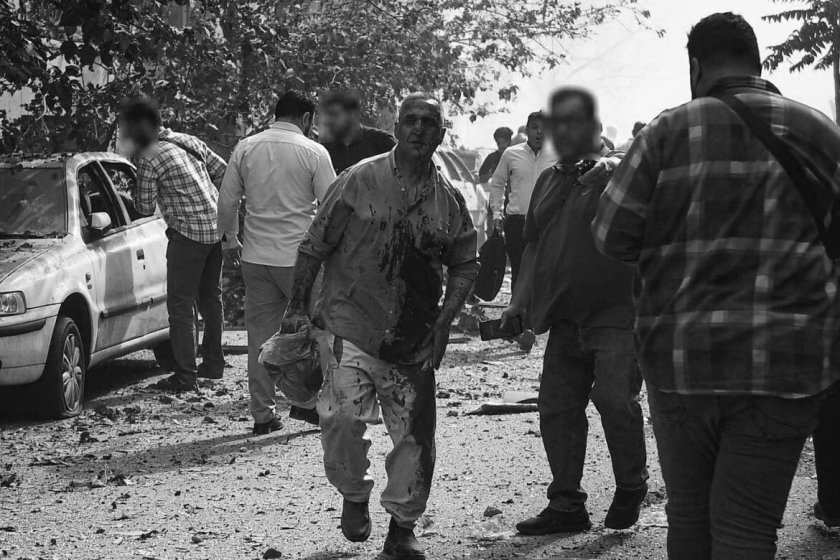Iran-Turkey relations on the question of Kurdistan Regional Government in Iraq

İhsan Çaralan

In the last few days, as part of the official visit to Iran, president Erdoğan and his team met the President of Iran, Hassan Rouhani and the religious leader, Ayatollah Ali Khamenei.
As part of the visit it is understood that the following four agreements were made: to further increase the natural gas purchase from Iran, for trade between the two countries to be done through “national currency”, for Turkish banks to be permitted to open in Iran and vice versa, for tourism, educational and cultural relations to expand, and for the volume of trade to increase to 30 billion dollars.
In relation to the referendum on independence, Iran and Turkey are in agreement that the referendum is void and that the KRG’s demand for independence is only supported by Israel and the formation of Kurdistan will be the new Israel.
HOW FAR ARE THEY IN “COMPLETE AGREEMENT”?
It is said that when the delegations from Turkey and Iran met they were in complete agreement on the problems they face, including economic challenges and the independence referendum by the KRG. However, when considering the period that the Middle East is going through and the long history in Turkish-Iranian relations, it is clear that “complete agreement” is not complete. In fact, it wouldn’t be wrong to suggest that this is just a “temporary and partial agreement” in which everybody is pursuing their own calculations and interests.
It would be more accurate to say that the two oldest and strongest states with a historical role in the region are in “complete rivalry” as a result of sectarian tensions and regional leadership issues.
In the past five years Iran and Turkey have come head to head in relation to both their politics on Syria and sectarian tensions. Although through Russia’s intervention they have come close to agreement on some issues relating to Syria, what has brought them to “complete agreement” is the independence referendum by the KRG.
Indeed, Turkey’s relationships were sour not just with Iran but also with Iraq. Just a year ago Erdoğan and the Iraqi Prime Minister Ibadi exchanged harsh words saying “Who do you think you are, know your place”. But now they are suddenly ready for a “joint operation”. Until a few months ago Esad’s name could not be mentioned without calls of “murderer, traitor” but now the relationship with Esad and his government are moving towards an “agreement”. For the time being, through Iran, Syria is joining the group that is in so-called “complete agreement”. However, in the coming days it will not be a surprise if Syria formally joins the Iran, Turkey and Iraq threesome.
{{333949}}
CAN THESE FOUR COUNTRIES DROWN THE KURDISTAN REGIONAL GOVERNMENT?
After meeting with Ayatollah Ali Khamenei, Erdoğan announced that the four countries are in “complete agreement” against the Kurdish demands for independence. He said: “Turkey to the North, Iran to the East, Iraqi central government to the South and Syria to the West… what referendum is this? Israel is the only country that recognises it. And a decision made by sitting at a table with MOSSAD has no legitimacy, it is illegitimate”
It is true that when observed on the map the KRG appears besieged by Iran, Iraq, Syria and Turkey. And in the circumstances one might think that these countries can strangle the KRG. But;
- The so-called “complete agreement” between the states in the region is “temporary” and is not complete, it is only a “partial” agreement.
- The maps of the states do not reflect the demographic makeup of the region and the lands on which the Kurds live extends far beyond the KRG.
- The KRG does not just neighbour the four countries, it is also neighbouring the Kurdish population of these four countries,
- When considering that the likes of Russia, the USA and Israel cannot ignore the independence demands of 30 million Kurds in the region, it becomes clear that the intention to drown the KRG by the big four surrounding it does not neatly fit with reality. The reality of the region is thus a challenge both on the map and for the countries in so-called “complete agreement”.
THE KURDS ARE BEING FORCED TO GET CLOSER TO THE USA AND ISRAIL
Iran has already begun preparations to fill the void that will be created if Turkey stops trading with the KRG! Moreover, Putin has rejected the claim that Turkey will turn off the Baku-Ceyhan Pipeline carrying petrol from the KRG to Ceyhan, which means that the threat by Turkey to turn off the pipe will not be that easy to realise. It is significant that a statement like this was made by Putin in the current circumstances as Russia has important petrol and natural gas investments in the KRG
For this reason, it is impossible not to see that the approach of Iran, Iraq, Turkey and Syria - who have been rejecting the KRG and declaring Barzani a traitor and a clan leader – is forcing the Kurds to ally themselves with the USA, Israel and Russia.
TURKEY: “WE CAN REACH AGREEMENT WITH EVERYONE EXCEPT KURDS”
Of these four countries, only Turkey cannot to see this. Turkey’s lack of foresight for the last six years has been their main issue with regards to their policy on Syria and the region. The collapse of the negotiating table and the deadlock in relation to its own Kurdish question has caused major handicaps for Turkey in its domestic and foreign policy. It is clear that Erdoğan and the AKP have not taken any lessons from their “we can come to an agreement with everyone except Kurds” attitude. In contrast Syria, Iraq and Iran have shown more flexibility with compromising with Kurds in their country. And for this reason Iran and even the Government of Iraq, have been more cautious than Turkey in order to avoid coming head to head on the battleground.
CAN THIS CURRENT “GOOD RELATIONSHIP” SURVIVE?
The times when Iran and Turkey had a good relationship were when they were not at war since 1646. It is also highlighted that the two allied countries are the most important ones in the Middle East with state traditions. However, this is only a one sided view of the Turkey – Iran relationship. The other side to this story is that for hundreds of years there have been rivalry in all fronts between the two nations even if they have not been at war. The rivalry has taken various forms including the Shia – Sunni conflict and leadership in the region.
For this reason, there has been mainly rivalry and tension with regards to Turkey – Iran relationship. And since AKP has taken power the fight between Turkey and Iran has been a clear Shia – Sunni conflict and a battle for leadership within the Islamic world.
The fact that it has now reverted to good relationship is a necessary part of the cycle and it is the independence referendum in KRG which has strengthened the good relationship.
However, there are live factors which will prevent the good mood from continuing. A new phase in the Syria conflict and any confrontation between the Shia and Sunni fractions will reverse this positive relationship.
{{333621}}
{{333354}}
Forwarding to the next article...
10 seconds remaining







Follow Evrensel